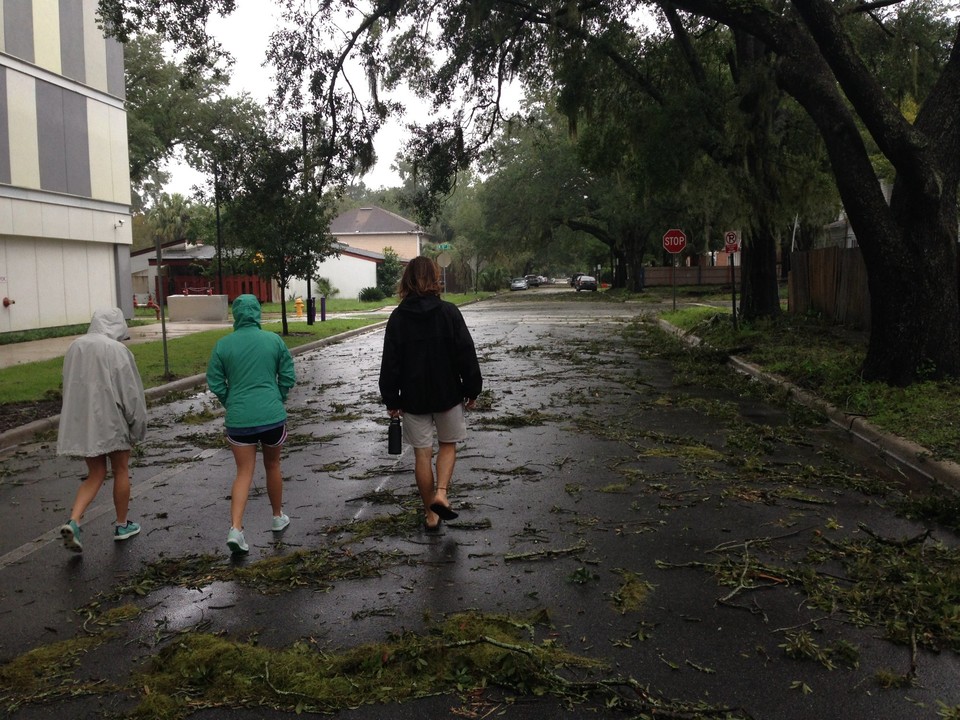In the annals of human experience, few events can encapsulate the dual nature of calamity and revelation like Hurricane Irma. This formidable tempest, with its gravitational pull on the human psyche, challenges us to navigate through its chaos while seeking deeper spiritual insights. Bahá’í teachings provide a profound framework through which one can interpret such trials, offering solace and elucidation amidst the storm.
To comprehend how one can find divinity amidst upheaval, it is prudent to consider the fundamental Bahá’í principle of unity. The concept of unity in diversity serves as a bedrock in spiritual understanding. In times of turmoil, individuals often feel isolated or alienated. Yet, the Bahá’í faith teaches that all humanity is interconnected. Hurricane Irma brought forth a salient reminder of this interconnectedness. Communities banded together, transcending barriers of ethnicity, class, and belief systems. This collective spirit of collaboration aligns with the Bahá’í ideal that every soul is part of a greater whole, an interconnected tapestry woven by the hand of the Divine.
Next, the notion of adversity as a catalyst for spiritual growth is pivotal. Bahá’í teachings espouse that trials are not mere hindrances but opportunities for personal and communal transformation. Hurricane Irma, while destructive, also unveiled the resilience of the human spirit. Individuals, when confronted with loss, discovered latent strengths and virtues. The trials reinforce the idea that life’s challenges can lead to profound spiritual awakening and deeper reliance on God. In this light, one learns to relinquish earthly attachments, transforming suffering into spiritual fortitude.
Moreover, the principle of consultation emerges as a critical facet of coping with crises. In the Bahá’í community, consultation serves as a mechanism for collective decision-making, harmonizing diverse perspectives. Following the hurricane, many individuals engaged in consultation to assess the course of action to take for recovery. This drive to share thoughts and solutions exemplifies the Bahá’í belief that wisdom is augmented when harnessed collaboratively. Consultative practices encourage transparency and collective problem-solving and offer a pathway to navigate the aftermath of a catastrophe, instilling hope and collective purpose.
Furthermore, the theme of divine providence is particularly resonant in the context of natural disasters. Bahá’í teachings affirm that God’s watchful presence surrounds humanity, even in times mired in suffering. Hurricane Irma, with its cataclysmic nature, may have induced fear and despair, yet many found themselves enveloped in a sense of peace through prayer and reflection. This spiritual fortification draws believers closer to God, reaffirming their faith that even amidst trials, the Divine orchestrates a greater plan. In the depths of despair, many re-discovered their faith, feeling the embers of divine love and guidance illuminating their path.
Additionally, the importance of service to humanity emerges as an essential Bahá’í principle. As the winds of Irma subsided, the need for assistance became paramount. Individuals from various backgrounds rendered aid, demonstrating the essence of being in service to others. This act of altruism not only helps in rebuilding the physical infrastructure but also contributes to the fortification of spiritual bonds among people. Bahá’í teachings advocate for service as a means to express love and compassion, establishing a mutually supportive network that can weather any storm, be it literal or metaphorical.
Furthermore, remembrance of the impermanence of life can yield insights that transcend the immediate circumstances. The prophecy of instability that hurricanes bring serves to recalibrate human perspectives on what truly holds value. As the destruction unfolds, people are often reminded of the fragility of material possessions. This realization aligns with Bahá’í insights on detachment, which encourage individuals to focus on spiritual wealth over transient materiality. In the eye of the storm, many found clarity about priorities—`embracing relationships, nourishing the soul, and fostering love over material concerns.`
Lastly, engaging in a dialogue about the reconciliation of faith, hope, and action reinforces the efficacy of Bahá’í teachings in times of turbulence. This triumvirate encourages individuals to articulate their experiences, recognizing faith as a source of resilience and hope as a vital companion during recovery. Engaging with one another allows for a tapestry of experiences to emerge, framing narratives that can inspire collective healing and transformation.
In conclusion, Hurricane Irma serves not merely as a physical manifestation of destruction but as a spiritual impetus for introspection, unity, and action. The teachings of the Bahá’í faith resonate profoundly in such tumultuous times, guiding individuals toward understanding their connection with the divine amidst chaos. Through communal support, resilience in adversity, and the abiding presence of divine love, individuals can cultivate a spirit of hope and empowerment, transforming the aftermath of a storm into an opportunity for spiritual rebirth and collective elevation.
